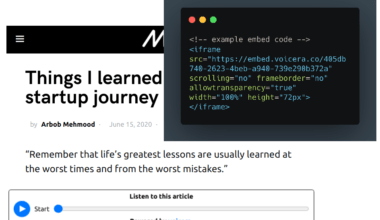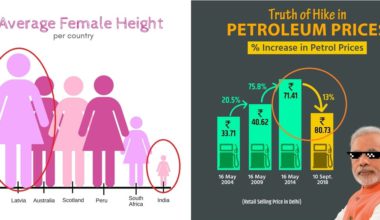I originally wrote this post on Quora dated Feb 22, 2018.
Cognitive Biases
A cognitive bias happens when someone makes a bad choice that they think is a good choice. However, when we consider that many of these errors will not only affect us but also everyone around us, then their consequences can really add up.
One of the first thing it teaches you is not to trust yourself.
We look for information confirming what we already believe, our memories are far more likely to be false than we expect, we are overconfident, poor at working with probabilities, and lose empathy when dealing with large numbers.
Knowing about this can help solve a lot of disagreements, at least when both participants know about this stuff: sometimes people get into heated debates saying they ‘just know’ happened on the basis of their memory, not realizing that the other person’s memory is likely equally strong, and how we’re probably just as likely as them to be wrong.
Of course, knowing about cognitive biases can harm your thinking, too. You can end up accusing everyone you disagree with of being biased (of course, they likely are; but so are you.Being biased doesn’t mean having nothing of worth to say, and to that extent we need to try very hard not to delude ourselves as much as possible. Being intellectually honest is seriously hard. Despite this, cognitive biases are a hugely useful thing to know about, and, given the right caveats, certainly worth having knowledge of.
Cognitive Biases that screw up your decision:
1. Anchoring bias.
People are over-reliant on the first piece of information they hear. In a salary negotiation, whoever makes the first offer establishes a range of reasonable possibilities in each person’s mind.
2. Availability heuristic.
People overestimate the importance of information that is available to them. A person might argue that smoking is not unhealthy because they know someone who lived till 100 and smoked three packs a day.
3. Bandwagon effect.
The probability of one person adopting a belief increases based on the number of people who hold that belief. This is a powerful form of groupthink and is reason why meetings are often unproductive.
4. Blind-spot bias.
Failing to recognize your own cognitive biases is a bias in itself. People notice cognitive and motivational biases much more in others than in themselves.
5. Choice-supportive bias.
When you choose something, you tend to feel positive about it, even if that choice has flaws. Like how you think your dog is awesome — even if it bites people every once in a while.
6. Clustering illusion.
This is the tendency to see patterns in random events. It is key to various gambling fallacies, like the idea that red is more or less likely to turn up on a roulette table after a string of reds.
7. Confirmation bias.
We tend to listen only to information that confirms our preconceptions — one of the many reasons its so hard to have an intelligent conversation about climate change.
8. Conservatism bias.
Where people favor prior evidence over new evidence or information that has emerged. People were slow to accept that the Earth was round because they maintained their earlier understanding that the planet was flat.
9. Information bias.
The tendency to seek information when it does not affect action. More information is not always better. With less information, people can often make more accurate predictions.
10. Ostrich effect.
The decision to ignore dangerous or negative information by “burying” one’s head in the sand, like an ostrich. Research suggests that investors check the value of their holdings significantly less often during bad markets.
11. Outcome bias.
Judging a decision based on the outcome — rather than how exactly the decision was made in the moment. Just because you won a lot in Vegas doesn’t a gambling your money was a smart decision.
12. Overconfidence.
Some of us are too confident about our abilities, and this causes us to take greater risks in our daily lives. Experts are more prone to this bias than laypeople, since they are more convinced that they are right.
13. Placebo effect.
When simply believing that something will have a certain effect on you causes it to have that effect. In medicine, people given fake pills often experience the same physiological effects as people given the real thing.
14. Pro-innovation bias.
When a proponent of an innovation tends to overvalue its usefulness and undervalue its limitations. Sound familiar, Silicon Valley?
15. Recency.
The tendency to weigh the latest information more heavily than older data. Investors often think the market will always look the way it looks today and make unwise decisions.
16. Salience.
Our tendency to focus on the most easily recognizable features of a person or concept. When you think about dying, you might worry about being mauled by a lion, as opposed to what is statistically more likely, like dying in a car accident.
17. Selective perception.
Allowing our expectations to influence how we perceive the world. An experiment involving a football game between students from two universities showed that one team saw the opposing team commit more infractions.
18. Stereotyping.
Expecting a group or person to have certain qualities without having real information about the person. It allows us to quickly identify strangers as friends or enemies, but people tend to overuse and abuse it.
19. Survivorship bias.
An error that comes from focusing only on surviving examples, causing us to misjudge a situation. For instance, we might think that being an entrepreneur is easy because we haven’t heard of all those who failed.
20. Zero-risk bias.
Sociologists have found that we love certainty — even if its counterproductive. Eliminating risk entirely means there is no chance of harm being caused.
An individual’s construction of social reality, not the objective input, may dictate their behaviour in the social world. Thus, cognitive biases may sometimes lead to perceptual distortion, inaccurate judgment, illogical interpretation, or what is broadly called irrationality. That’s why you must know, when you are entering into the mode of cognitive bias that might affect your rationality in the real world.

